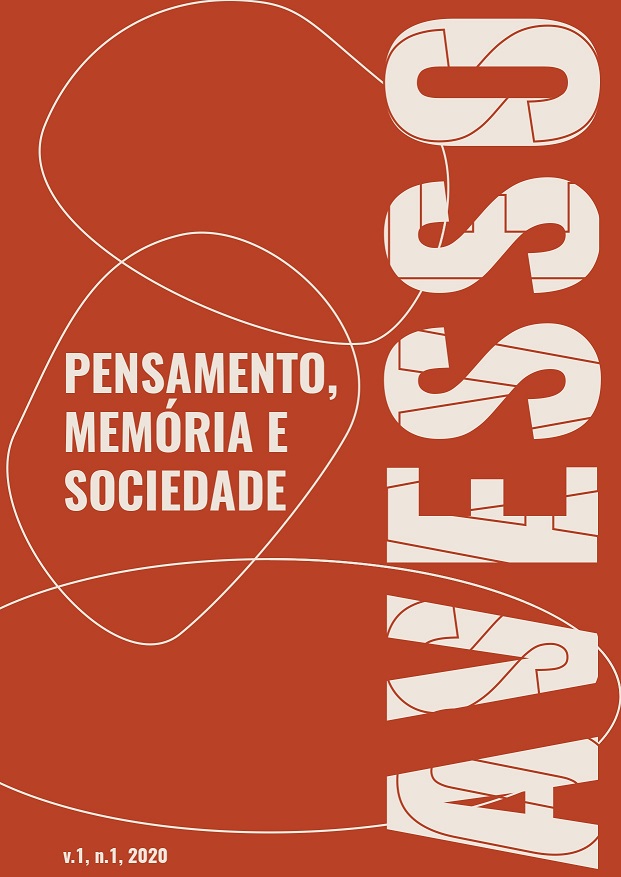Notas sobre o nacionalismo curdo: reformulação da identidade nacional
DOI:
https://doi.org/10.23925/2675-8253.2020v1IiA2Palavras-chave:
Nação, Nacionalismo, Curdos, PKK, ÖcalanResumo
O movimento curdo, bem como a identidade nacional curda, se transformou em diversos momentos ao longo do século XX. No final dos anos 70 nasce o Partido dos Trabalhadores do Curdistão (PKK), e este rapidamente se torna a principal organização do movimento curdo. Após um processo de reformulação no final dos anos 90, que foi promovido em grande parte pela maior participação das mulheres curdas, o partido nega suas origens marxistas e passa a adotar um programa anticapitalista e anti-estatal. Sua estratégia política foi denominada Confederalismo Democrático. Assim, a perspectiva do movimento em relação à identidade nacional curda se modificou. A partir deste contexto, o presente artigo tem por objetivo discorrer sobre a identidade nacional curda e sua redefinição pelo PKK.
Referências
AKKAYA, Ahmet Hamdi; JONGERDEN, Joost. “The PKK in the 2000s: Continuity through breaks?”. In: CASIER, MARLIES e JONGERDEN, Joost. Nationalisms and politics in Turkey: political Islam, Kemalism and the Kurdish Issue. New York: Routledge, 2011, p. 143-62.
ANDERSON, Benedict. Comunidades Imaginadas. São Paulo: Companhia das Letras, 2008.
BALAKRISHNAN, Gopal. Um mapa da questão nacional. Rio de Janeiro: Contraponto, 2008.
BOOKCHIN, Murray. Ecologia social e outros ensaios. Rio de Janeiro: Achiamé, 2010.
BREUILLY, JOHN. The Oxford Handbook of the History of Nationalism. Oxford: Oxford University Press, 2013.
CAGLAYAN, Handan. From Kawa the Blacksmith to Ishtar the Goddess: Gender Constructions in Ideological-Political Discourses of the Kurdish Movement in post-1980 Turkey. European Journal of Turkish Studies, p.19-33, 2012.
DIRIK, Dilar. Living Without Approval. New World Academy Reader: Stateless Democracy. Amsterdam: BAK, 2015.
JONG, Alex de. De apisonadora estalinista a mariposa libertaria? La evolución ideológica del PKK. Viento Sur, n. 140, jun. 2015.
GUIBERNAU, Montserrat. Nations Without States: Political Communities in the Global Age. Michigan Journal of International Law, n. 25, 2004.
GUNTER, Michael. An Historical Overview to the Kurdish Problem. The Copernicus Journal of Political Studies, n. 2 (5), 2013.
GUNTER, Michael M. Historical Dictionary of the
Kurds: Historical Dictionaries of Peoples and Cultures. 2. ed. Scarecrow Press, 2010. 457 p. Kindle Edition.
KNAPP, Michael; FLACH, Anja; AYBOGA, Ercan. Revolution in Rojava: Democratic Autonomy and Women’s Liberation in Syrian Kurdistan. London: Pluto Press, 2016.
KREYENBROEK, Philip; SPERL, Stefan. The Kurds: a contemporary overview. London/New York: Routledge, 1992.
MARCUS, Alisa. Blood and Belief: The PKK and the kurdish fight for independence. New York & London: New York University Press. 2007.
MCDOWALL, David. A Modern History of the Kurds. London/New York: I.B. Tauris & Co Ltd, 2007.
ÖCALAN, Abdullah. Confederalismo Democrático. Rio de Janeiro: Rizoma, 2016.
ÖCALAN, Abdullah. Democratic Nation. Cologne: International Initiative, 2017.
______. Guerra e paz no Curdistão. Cologne: International Initiative, 2008.
______. Libertando a vida: a revolução das mulheres. São Paulo: Fundação Lauro Campos, 2016.
RENAN, Ernest. What is a nation?. In: BHABHA, Homi K. Nation and Narration. London/New York: Routledge, 1990.
SCHMIDINGER, Thomas. Rojava: Revolution, War, and the Future of Syria’s Kurds. London: Pluto Press, 2018.
VAN BRUINESSEN, Martin. Agha, Shaikh, and State: On the Social and Political Organization of Kurdistan. Utrecht: University of Utrecht, 1978.
WHITE, Paul. The PKK: Coming Down from the Mountains. London: Zed Books, 2015.














